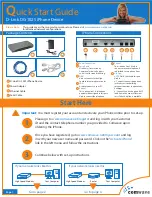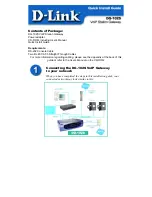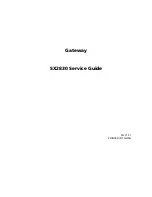
260
Dialogic
®
1000 and 2000 Media Gateway Series User’s Guide
Media Gateway Parsers
The above provides a translation of the switch-specific reason code “FWD” to the application
string “fwd-all”. If the token “FWD” is found in the reason-code section of a display, the reason
code presented to the application will be “fwd-all”. This provides a means of normalizing different
switch-specific reason codes into strings that can be recognized by the application. The following is
an origin example.
trans origin |default|internal
If the switch-specific code is ‘default’, then the application string of the translation is set as the
default translation result if no switch-specific string is found. In the above case, the default call
origin for all displays is 'internal'.
6.2.2
Call Class Rules
On a telephone network, there can be several different string formats for call information.
Integration or display strings which use the same format are said to be in the same “Call Class”.
That is, two integration or display strings can be parsed using the same rules if they are in the same
call class. If an integration or display string cannot be parsed using the same rules, then a new call
class must be declared.
Regular Expressions
Call classes will be recognized using user-defined regular expressions. The parser uses standard
regular expression “metacharacters” (special characters which are used to describe sequences of
regular characters) in addition to some specific metacharacters.
Table 16. Parser Regular Expressions
Characters and
Meta-Characters
Purpose
Analog Parsing
Applicable
.
Any single character.
Yes
\
Character to right is literal. (quoted character)
Yes
?
0 or 1 of preceding character.
No
*
0 or more of preceding character.
Yes
+
1 or more of preceding character.
No
~
A reason code or call origin character.
No
\d
Digit character. (call party number)
Yes
\D
Non-digit character.
No
\w
Word character. (call party name) Must start with alpha,
then can be alpha, digit, -, comma, space, ., or _.
No
\s
Whitespace character. Space, newline, or tab.
No
\b
Word boundary. Whitespace, punctuation, beginning or end
of text. Used to specify that strings are bounded at start or
end of string. Not explicitly searched for. Checked on
reasons, digits, and literal strings.
No
Summary of Contents for 1000Series
Page 1: ...Dialogic 1000 and 2000 Media Gateway Series User s Guide December 2014 64 0346 13...
Page 10: ...10 Dialogic 1000 and 2000 Media Gateway Series User s Guide Contents...
Page 14: ...14 Dialogic 1000 and 2000 Media Gateway Series User s Guide Contents...
Page 24: ...24 Dialogic 1000 and 2000 Media Gateway Series User s Guide About This Publication...
Page 36: ...36 Dialogic 1000 and 2000 Media Gateway Series User s Guide Overview...
Page 44: ...44 Dialogic 1000 and 2000 Media Gateway Series User s Guide Media Gateway Configuration...
Page 190: ...190 Dialogic 1000 and 2000 Media Gateway Series User s Guide Parameter Reference...
Page 200: ...200 Dialogic 1000 and 2000 Media Gateway Series User s Guide Call Progress Tones...
Page 272: ...272 Dialogic 1000 and 2000 Media Gateway Series User s Guide Data Security...
Page 326: ...326 Dialogic 1000 and 2000 Media Gateway Series User s Guide...
















































